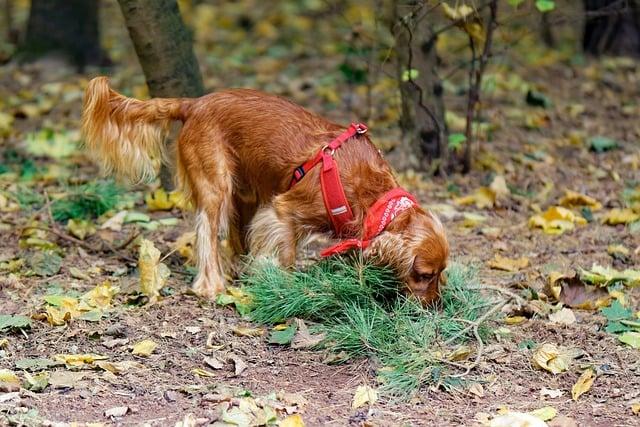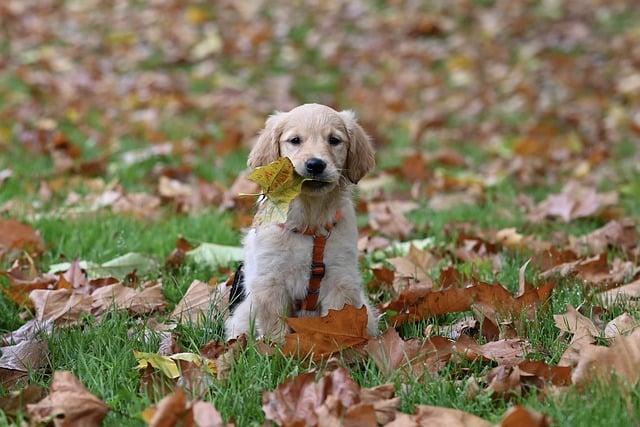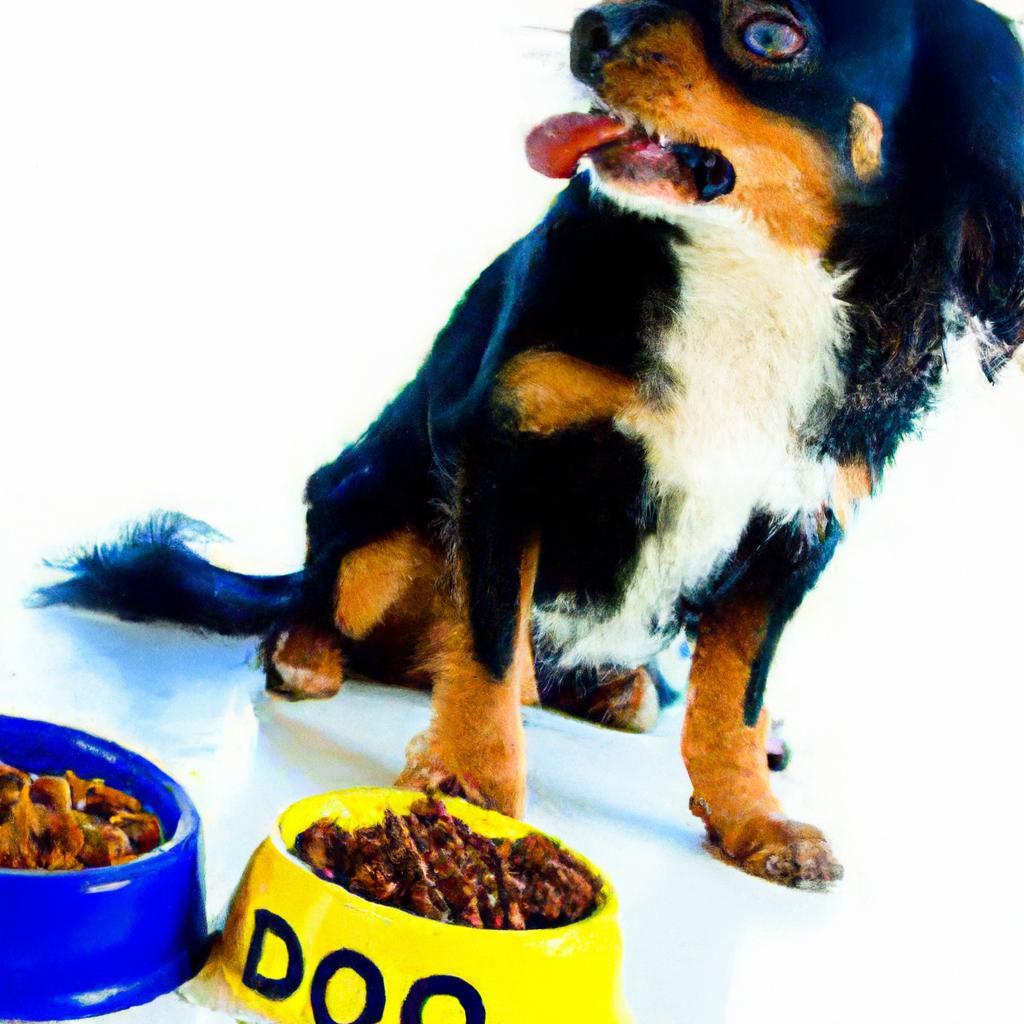Imagine coming home after a long day, feeling the weight of the world on your shoulders. As you open the door, your loyal dog bounds toward you, tail wagging furiously. With a joyful leap, they shower your face with enthusiastic licks. Are these just playful gestures, or are they something more? In that moment, those dog licks transform into heartfelt kisses, a language of love and affection only they can speak. Embrace these wet, warm tokens of devotion; they remind us that love can be expressed in the simplest of ways.
Contents
- Understanding the Emotional Language of Dogs and Their Licks
- The Science Behind Canine Licking Behavior and Its Implications
- Decoding the Meaning: Are Dog Licks Truly Affectionate Kisses?
- Fostering Positive Interactions: How to Respond to Your Dogs Licks
- Q&A
Understanding the Emotional Language of Dogs and Their Licks
When it comes to understanding our canine companions, their licks can often be a source of confusion. Many dog owners wonder if these affectionate gestures are simply a form of communication or if they hold deeper emotional significance. Dogs have a unique way of expressing their feelings, and their licks can convey a variety of messages, from love and affection to anxiety and submission. By observing the context and frequency of these licks, we can gain insight into what our dogs are trying to tell us.
One of the most common interpretations of dog licks is that they are a sign of affection. When a dog licks you, it may be their way of saying, **“I love you.”** This behavior is often seen in puppies who lick their mothers as a form of bonding and comfort. As dogs grow, they carry this instinct into their relationships with humans. In this sense, licks can be viewed as a canine version of a kiss, a way for them to express their attachment and loyalty to their human family members.
However, not all licks are created equal. Sometimes, a dog may lick as a response to stress or anxiety. In these cases, the licking can be a self-soothing behavior, helping them cope with their emotions. It’s essential to pay attention to the situation in which the licking occurs. If your dog is licking excessively or in a frantic manner, it may indicate that they are feeling overwhelmed or insecure. Understanding these nuances can help you provide the support your dog needs during stressful times.
Additionally, dogs may lick to gather information about their environment or the people around them. Their sense of taste is closely linked to their sense of smell, and licking can be a way for them to explore and understand their surroundings. This behavior can also serve as a social signal, inviting interaction or signaling submission to a more dominant dog or person. By recognizing the different motivations behind your dog’s licks, you can foster a deeper bond and respond appropriately to their emotional needs.
The Science Behind Canine Licking Behavior and Its Implications
Canine licking behavior is a fascinating phenomenon that has intrigued pet owners and researchers alike. At its core, licking serves multiple purposes for dogs, ranging from communication to self-soothing. When a dog licks, it releases endorphins, which can create a sense of comfort and reduce stress. This natural response is not only a way for dogs to express affection but also a mechanism for coping with anxiety or discomfort. Understanding this behavior can deepen our bond with our furry companions.
Moreover, licking is a form of social interaction among dogs. In the wild, puppies lick their mothers to solicit care and attention, while adult dogs may lick each other as a sign of submission or to reinforce social bonds. This instinctual behavior carries over into their relationships with humans. When your dog licks you, it may be their way of saying, “I trust you” or “I care about you.” Recognizing this can help owners interpret their pets’ actions more accurately and respond with the affection they seek.
However, it’s essential to consider the context of licking behavior. While occasional licking can be a sign of love and affection, excessive licking may indicate underlying issues such as anxiety, boredom, or even medical problems. Pet owners should be vigilant and observe their dogs for changes in licking patterns. If a dog begins to lick excessively, it may be time to consult a veterinarian or a professional trainer to address potential behavioral or health concerns.
the science behind canine licking behavior reveals a complex interplay of instinct, communication, and emotional expression. By understanding the motivations behind this behavior, pet owners can foster a more profound connection with their dogs. Embracing the nuances of canine affection not only enhances the human-animal bond but also promotes a healthier, happier life for our beloved pets. Recognizing the significance of those wet, loving licks can transform our perception of them from mere habits to meaningful gestures of love.
Decoding the Meaning: Are Dog Licks Truly Affectionate Kisses?
When your furry friend greets you with enthusiastic licks, it’s hard not to interpret these gestures as affectionate kisses. However, the reality behind this behavior is more nuanced than mere displays of love. Dogs have a rich tapestry of communication methods, and licking is just one thread in that intricate weave. Understanding the motivations behind these licks can help us appreciate our pets’ unique ways of expressing themselves.
One of the primary reasons dogs lick is to explore their environment. Their sense of taste is closely linked to their sense of smell, and licking allows them to gather information about their surroundings. This behavior is instinctual and can be traced back to their ancestors, who used licking as a way to learn about their pack and their territory. Therefore, when your dog licks you, it might not just be a kiss; it could also be an attempt to understand you better.
Moreover, licking can serve as a form of social bonding. In the canine world, licking is often a sign of submission or affection among pack members. When your dog licks you, it may be expressing a desire to strengthen the bond between you. This behavior can also be seen in mother dogs licking their puppies, which reinforces the connection and provides comfort. Thus, while it may not be a kiss in the traditional sense, it certainly carries a weight of emotional significance.
Lastly, it’s essential to consider the role of comfort and reassurance in licking behavior. Dogs often lick themselves or their owners when they feel anxious or stressed, as this action can be soothing. If your dog is licking you excessively, it might be a signal that they are seeking comfort or reassurance from you. Recognizing this can help you respond appropriately, ensuring that your dog feels secure and loved in your presence.
Fostering Positive Interactions: How to Respond to Your Dogs Licks
When your dog greets you with enthusiastic licks, it can feel like a warm embrace from a furry friend. However, understanding the context of these licks is crucial for fostering positive interactions. Dogs use licking as a form of communication, expressing affection, seeking attention, or even showing submission. By recognizing the reasons behind their behavior, you can respond in a way that reinforces your bond.
To create a positive experience when your dog licks you, consider the following responses:
- Engage with affection: Gently pet or scratch your dog in return. This not only acknowledges their gesture but also encourages them to continue expressing their feelings.
- Redirect if necessary: If the licking becomes excessive, gently redirect their attention to a toy or a game. This teaches them that while their affection is appreciated, there are appropriate times and ways to express it.
- Use verbal cues: Praise your dog with a calm voice when they lick you in a way that feels comfortable. This reinforces the behavior you want to encourage, making them feel valued and understood.
It’s also essential to be mindful of your own reactions. If you respond negatively or push your dog away, they may interpret this as a sign to stop showing affection altogether. Instead, aim to create an environment where your dog feels safe to express their emotions. By responding positively, you help build their confidence and strengthen your relationship.
Lastly, remember that every dog is unique. Pay attention to your dog’s individual personality and preferences. Some may enjoy licking as a way to bond, while others might prefer different forms of interaction. By being observant and responsive, you can cultivate a deeper understanding of your dog’s needs and enhance the quality of your time together.
Q&A
-
What does it mean when a dog licks you?
When a dog licks you, it can be a sign of affection, similar to a kiss. Dogs often lick to show love and bond with their owners. This behavior is rooted in their instincts, as puppies lick their mothers to solicit care and attention.
-
Are dog licks hygienic?
While dog saliva contains some antibacterial properties, it is not entirely hygienic. Dogs explore their environment with their mouths, which can introduce bacteria. It’s essential to maintain good hygiene by washing your hands after being licked, especially before eating.
-
Can dog licks be harmful?
In most cases, dog licks are harmless; however, they can pose risks if your dog has certain health issues or if you have open wounds. It’s crucial to monitor your dog’s health and consult a veterinarian if you notice any unusual behavior or signs of illness.
-
Should I encourage my dog to lick me?
Encouraging your dog to lick you can strengthen your bond, but it’s essential to set boundaries. If you enjoy the affection, allow it in moderation. However, if it becomes excessive or bothersome, gently redirect your dog’s behavior to ensure a healthy relationship.
while dog licks may not be traditional kisses, they are genuine expressions of affection and trust. Embrace these unique gestures as a testament to your bond, and remember that love comes in many forms—sometimes with a wagging tail and a wet nose.

大家好,我是彼得潘,專業的手法身體治療師。我喜歡探索和研究各種主題,並透過與人工智慧的合作分享專業、實用、有趣的文章。我們定期進行人工審核,以確保內容的準確性。如果您發現文章中有任何不準確的地方,請隨時與我們聯繫,我們會及時糾正。您可以透過 [email protected] 與我們聯繫。



